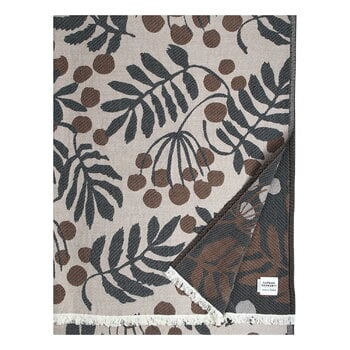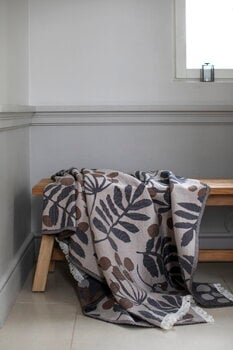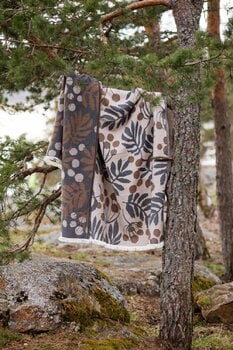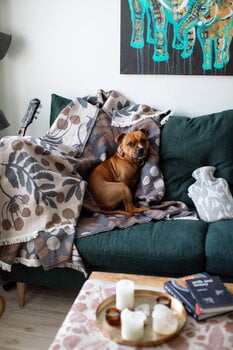The Pihapuu throw by Lapuan Kankurit combines luxuriously soft warmth with nature-inspired aesthetics – the Finnish word "pihapuu" translates to "yard tree". Designed by Saara Obele, the three-colour pattern is mirrored on the reverse side in contrasting shades, with delicate fringes providing the finishing touch.
The Pihapuu blanket is made from a fine blend of merino wool and bio-organic cotton, offering a texture that feels delightful even against bare skin. The throw has been woven in the town of Lapua, Finland. Did you know that the brand name Lapuan Kankurit literally translates to "weavers of Lapua"?











